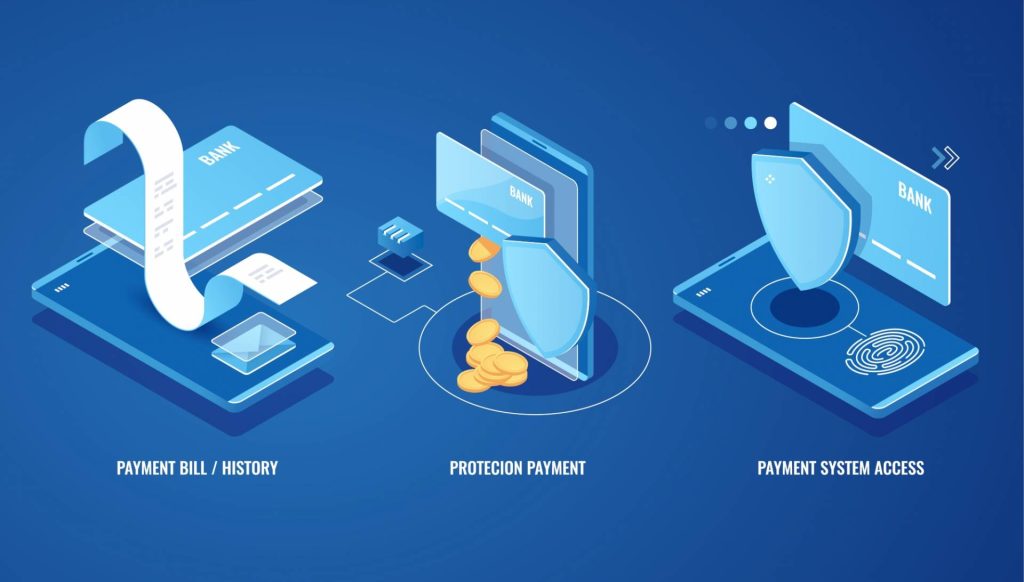- Free Strategy Session: (847) 906-3460 Tap Here to Call Us
Digital Coins, Tokens, Cryptocurrencies for Beginners

Digital Coins
Digital coins, virtual coins, tokens, or cryptocurrencies are bits of computer code. What makes this computer code special is that it is created on something called a “blockchain.” Blockchain technology allows people to engage in financial transactions directly with each other, without a bank or other financial intermediary. Transactions taking place on a blockchain are protected through cryptography and recorded on thousands of identical computer ledgers all over the world. There are some great introductions to blockchain technology and bitcoin that you can watch on YouTube. Here are a few I have blogged about previously: Blockchain + Crypto Explanations.
Digital coins like bitcoin have value only because other people are willing to pay for them. As long as people have confidence in a digital coin, it will continue to have value. As of this writing, a lot of people have confidence in bitcoin. Indeed, people hold almost $130 billion in bitcoin alone, and over 150,000 bitcoin transactions are processed each day.
How Did Digital Coins Get Started?
The creation of bitcoin and the blockchain came on the heels of the Great Recession (2008). The first digital coin, bitcoin, was created in 2009 by Satoshi Nakamoto. Nobody knows who Nakamoto is or whether he is one person or a group.
Nakamoto published a nine-page white paper called Bitcoin: A Peer-to-Peer Electronic Cash System. In the paper, he proposed an alternative to the existing financial system, which had recently failed so spectacularly. He proposed a system that would cut out governments, banks and other financial institutions, a system that would allow “two willing parties to transact directly with each other without the need for a trusted third party.” The goal was a peer-to-peer financial system that offered privacy, was independent of governments and eliminated the transactional expenses imposed by, and the interference of, banks and other financial intermediaries. Bitcoin would be created and maintained on a blockchain.
The bitcoin blockchain is maintained by “miners” who are paid in bitcoin when they are first to solve complex mathematical problems. They are called miners because they are trying to unearth, or mine, a finite resource, namely, 21 million bitcoin that are available on the bitcoin blockchain. Unless there is a consensus that allows the bitcoin protocol (or computer code) to be modified, only 21 million bitcoin will ever exist. Miners also receive transaction fees from those who have transactions on the bitcoin blockchain.
All lawyers should have some familiarity with the legal and regulatory issues concerning digital coins. Clients may ask to pay for legal services in digital coins. Individuals and businesses may acquire and hold digital coins as part of their estates. This means lawyers will be expected to be familiar with, and inquire about, digital coins in many types of matters such as litigation, tax, divorce, estate planning, probate, bankruptcy, and business transactions.
The Regulation of Digital Coins
For some time there has been some uncertainty as to how digital coins are regulated in the United States. As a result, some issuers of digital coins and digital coin exchanges have moved their operations offshore and will not do business with U.S. residents.
Digital coins as currency. Banking regulators require businesses selling virtual currencies like bitcoin to register as money transmitters and comply with anti-money laundering (AML) and “know your customer” (KYC) regulations. At the federal level, the Financial Crimes Enforcement Network (FinCEN), a bureau of the U.S. Treasury Department, oversees registration and regulation of money transmitting businesses. FinCEN issued guidance in March 2013 on the regulatory responsibilities of money transmitter businesses in a document entitled, Application of FinCEN’s Regulations to Persons Administering, Exchanging, or Using Virtual Currencies, which can be found here.
Money transmitters are also generally required to register with states. State money transmitter laws generally cover digital coin transactions. One notable exception is the state of Illinois. Illinois regulators do not consider digital currencies to be money under the Illinois Transmitters of Money Act. Only a few states, including North Carolina and New York, have enacted specific legislation addressing virtual currency money transmitters. For example, New York implemented “BitLicense” regulations that apply to money transmitters doing business in New York, which has been very unpopular with those in the cryptocurrency industry.
Digital coins as commodities. The Commodities Futures Trading Commission (CFTC) considers digital coins, which it calls “virtual currencies,” to be commodities. While the CFTC does not directly regulate the sale of commodities—such as gold, silver and pork bellies—it does regulate derivatives that are based upon the value of commodities, such as swaps, futures contracts, and options contracts.
In the last year, the CFTC has allowed two of the exchanges it oversees to begin trading bitcoin futures. The Chicago Mercantile Exchange and the Chicago Board Options Exchange used a self-certification process to approve and begin trading these contracts, so the CFTC did not have to expressly approve the trading of bitcoin futures contracts. Yet it is notable that the CFTC did not object to the exchanges undertaking this type of trading. Recently the CFTC reported that the trading of bitcoin futures was working well.
The CFTC also regulates through enforcement actions. The CFTC brought several antifraud actions concerning digital coin investment schemes. It also brought an enforcement action against Bitfinex, one of the major online digital coin trading platforms, for operating as an unregistered futures commission merchant and for facilitating the financing of transactions in bitcoin for participants who were not eligible under the Dodd-Frank Wall Street Reform and Consumer Protection Act.
The CFTC has been in the vanguard of government agencies understanding digital coins. Much guidance on digital coins is available on its website. The CFTC has issued helpful guidance in several publications available here: A CFTC Primer on Virtual Currencies, CFTC Backgrounder on Oversight of and Approach to Virtual Currency Futures Markets.
Digital coins as securities. Actions of the Securities and Exchange Commission (SEC) have created the greatest angst for practitioners in the digital coin space. In general, the SEC considers any offering of a digital coin (known as an initial coin offering or ICO) to be a securities offering. SEC Chairman Jay Clayton has said, “I believe every ICO I’ve seen is a security.”
This is important for lawyers because Chairman Clayton has made it clear that the SEC is carefully scrutinizing the activities of gatekeepers of the securities markets—including lawyers. This is not an idle threat. The SEC has brought actions against lawyers for aiding and abetting violations of federal securities laws. Recently the SEC charged a lawyer and his firm with fraud under the 1933 Securities Act and aiding and abetting a client to commit fraud in filing a false securities registration statement with the SEC.
The determination of whether a digital coin is security is not always clear-cut. There is no simple formula. The SEC looks at the economic reality of a particular transaction. The Howey test is the long-standing test for whether an offering is subject to federal securities laws. In the Report of Investigation Pursuant to Section 21(a) of the Securities Exchange Act of 1934: The DAO (the DAO Report), the SEC issued an authoritative statement of how it applied the Howey test to conclude that digital coins issued by the DAO, an unincorporated organization, were securities: “An investment contract is an investment of money in a common enterprise with a reasonable expectation of profits to be derived from the entrepreneurial or managerial efforts of others . . . . In analyzing whether something is a security, form should be disregarded for substance, and the emphasis should be on economic realities underlying a transaction, and not on the name appended thereto (citations omitted).”Because the DAO digital coins, called tokens, offered investors the prospect of earning profits that would be generated through the managerial and entrepreneurial efforts of the issuers and others, the SEC considered the coins securities.
While recent enforcement actions have given the digital coin industry clearer guidance on what is and is not a security, it is important for non-lawyers and even lawyers who do not regularly practice in this area to seek the advice of an experienced securities lawyer. Many nonlawyers, and even some securities lawyers have misinterpreted the language of the DAO Report and concluded that their particular digital coin is not a security.
Just because a digital coin was launched through an ICO, does not mean that it will always be considered a security. Whether a digital coin is a security depends on how it is sold and the reasonable expectations of purchasers. While there has not yet been a ruling by the SEC on this issue, the remarks of SEC officials, including the individual Commissioners, are useful in determining how the SEC is thinking about this issue. Those remarks indicate that bitcoin (not initially offered through an ICO) and ether (offered initially through an ICO) are not considered securities by the SEC.
In April 2018 congressional testimony, Clayton noted bitcoin as something that is often cited as a pure medium of exchange “that has been determined by most people to not be a security.” While not the clearest guidance, practitioners took note. More definitive, albeit still nonbinding, guidance was recently provided by the director of the SEC’s Division of Corporate Finance. Director William Hinman addressed whether a digital coin that was originally a securities offering could later be used in the marketplace as a currency and no longer be a security. In Hinman’s view, “If the network on which the token or coin is to function is sufficiently decentralized—where purchasers would no longer reasonably expect a person or group to carry out essential managerial or entrepreneurial efforts—the assets may not represent an investment contract.” This view indicates that even though ether was initially issued through an ICO, it has changed from security to a cryptocurrency.
The SEC continues to announce settled and contested enforcement actions in the digital coin space. It is primarily through those federal court cases and administrative actions that we will get a clearer sense of the SEC’s views.
Accepting Digital Coins as Payment
Certain digital coins like bitcoin and ether are gaining wide acceptance as a currency. You can use bitcoin to buy lunch (Subway, PizzaForCoins—Domino’s Pizza, Whole Foods, KFC Canada), travel (Virgin Galactic, Expedia, CheapAir), buy software (Microsoft, Intuit), and buy books and online reading materials (MIT Coop at Kendall Square Bookstore, Bloomberg.com, Suntimes.com). While you cannot yet pay your income tax with bitcoin, the state of Arizona is working on it. There are even some lawyers who accept payment in bitcoin.
The only state to expressly authorize attorneys to accept bitcoin as payment is Nebraska. If a Nebraska attorney receives bitcoin in payment, he or she is required to convert the bitcoin immediately to U.S. currency. Even if your state permits you to accept digital coins as payment for legal services, you should be extremely cautious in doing so.
Before you decide to accept payment in digital coins, first make sure that your state permits you to do so. Second, ensure that you are accounting for digital coin payments properly. Third, be aware of all the ways that your digital coins can be stolen. Even Apple co-founder Steve Wozniak has had bitcoin stolen. Common ways that digital coins may be stolen are through phishing schemes, fake exchanges, and clipboard hijacking. Fake exchanges have websites and addresses that masquerade as legitimate digital coin exchanges. Clipboard hijacking is accomplished by computer viruses that remain dormant until they detect a digital coin address copied onto a clipboard, which is the way most people enter online wallet addresses for digital coin transactions. The virus changes the receiving online wallet address to steal the digital coins. If you decide to accept bitcoin or other cryptocurrencies as payment, you should take precautions and stay abreast of the latest scams.
A version of this article will be published in the ABA Law Practice Management magazine shortly.























